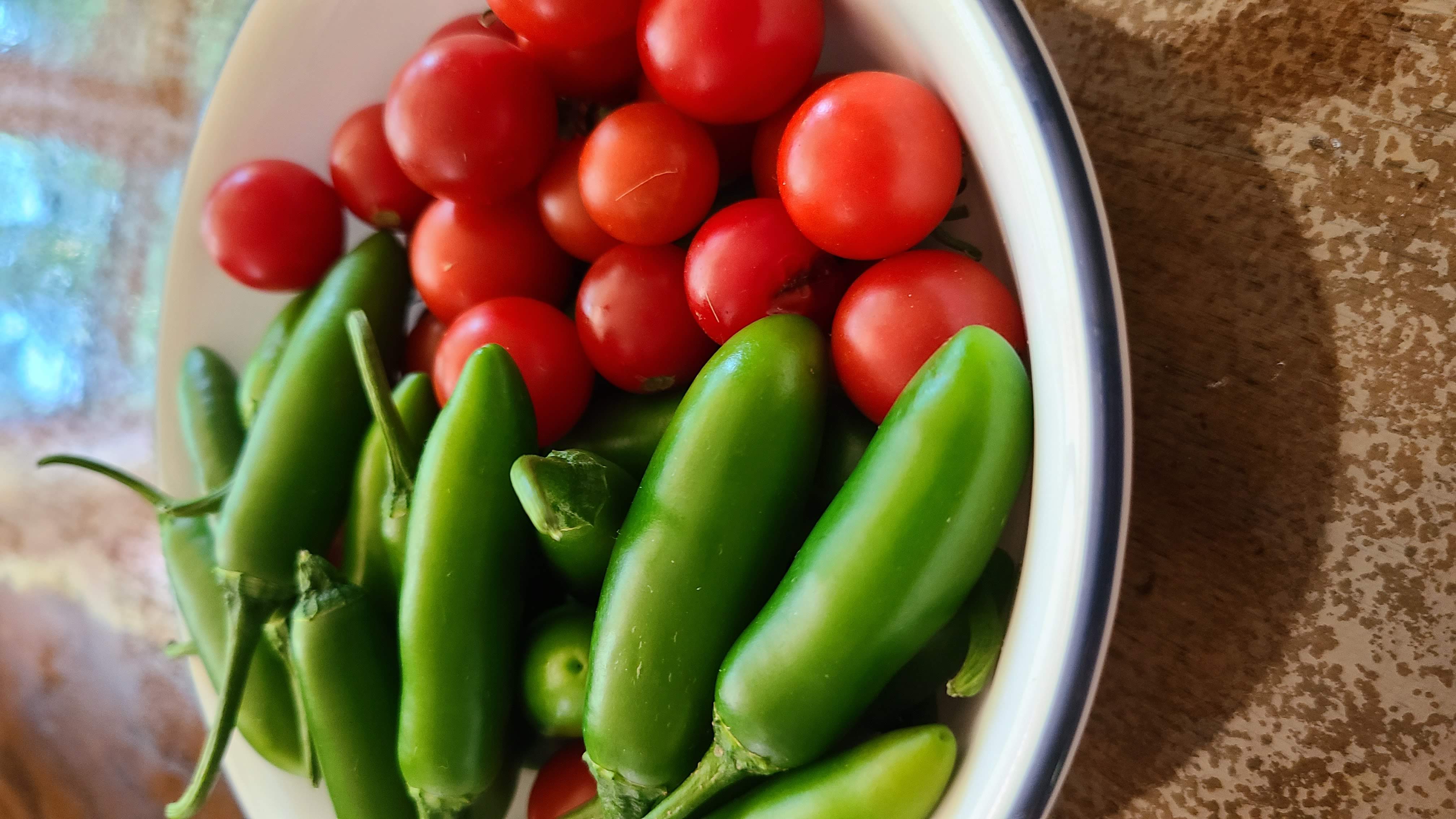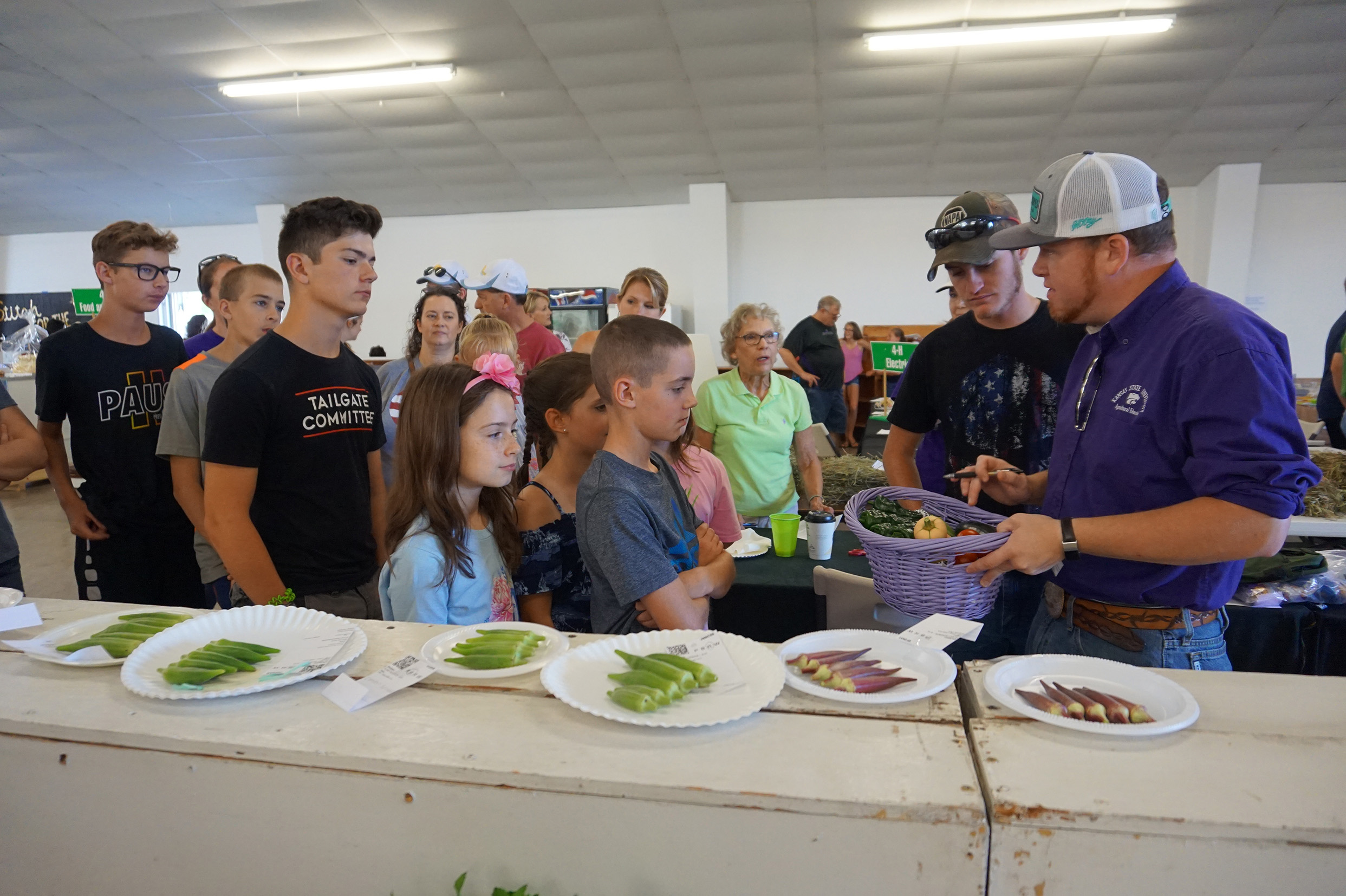The Value of Gardening with Your Kids
My family had a vegetable garden for as long as I remember. I vividly remember running (or should I say walking) to the backyard with a pair of shears to cut green onions or lettuce for our family dinners. It wasn’t until I started teaching that I realized the value of the experience. We were making microscope slides of onion cells when I explained that onions didn’t need chloroplasts because they grow underground, and a child replied, “WHAT?!? Onions grow underground?”
Kids learn and process new information by adding to their experience and what they already know. I was surprised to learn that some of the students I worked with had never seen vegetables in the garden. It might be a little more challenging if you don’t have the space for a full garden but I encourage you to pick up a small container and see what you might be able to grow. K-State Horticulture has some great resources you can use here.

Participation in a variety of 4-H projects lays the foundation for 4-H’ers to learn and grow beyond their project experience. So, let’s explore some of the benefits of a home vegetable garden:
- Develops Character - We live in a convenient world where we can find fruits and vegetables year round. It’s so easy to go to the supermarket and purchase a pineapple but have you thought about how long it takes to grow it? Pineapples can take 16-24 months for pineapple to produce fruit. Growing your own food takes patience. It will challenge your child to problem solve and conduct research. It will help them develop good work ethics to water, weed, and care for the plants. Growing your own food is not an easy task.
- Appreciation for the Environment - A healthy garden requires a healthy environment. It’s a balance of healthy soil, sunlight, water, and air. Our daily decisions impact the health of our planet. It's a great opportunity to teach human impact and the approximately 1.6 million pound of food waste produced here in Johnson County annually.
- Promote Healthy Eating - Gardening helps improve attitudes towards fruits and vegetables and leads to higher consumption of vegetables. I hated (or should I say disliked) tomatoes as a child but I would eat the tomatoes that I grew in my garden because it was mine. I watched the tomato start as a flower and slowly ripen over time so I had to eat it.
- Spending Time Outdoors - There is a reason why kids are more energized during the summer months. Spending time outdoors helps reduce anxiety, stress, depression and helps our body create vitamin D.
- Builds Scientific Understanding - Growing vegetables is full of lessons on botany, biology and environmental science. Work with your child to select the best place for your garden by tracking the path of the sun. Take a soil sample and bring it into the Extension Office for a soil analysis. Watch the flower bloom for the plant to produce a fruit. There’s no better way to learn than through hands-on experience.

Raised beds can be a fun project for your 4-H’er.
The Kansas Garden Guide contains everything you need to know.